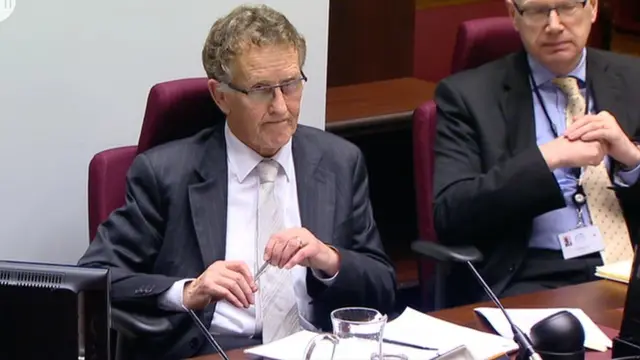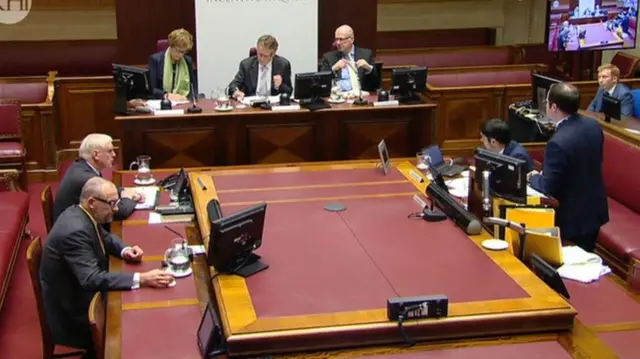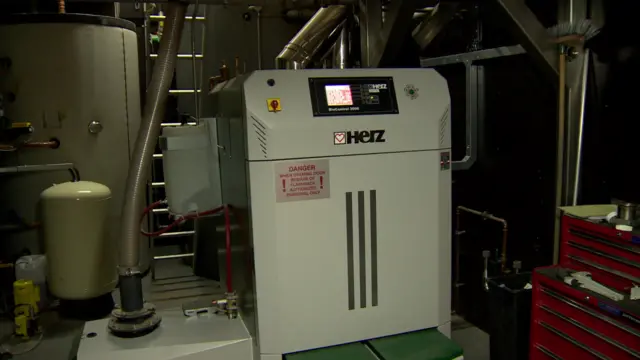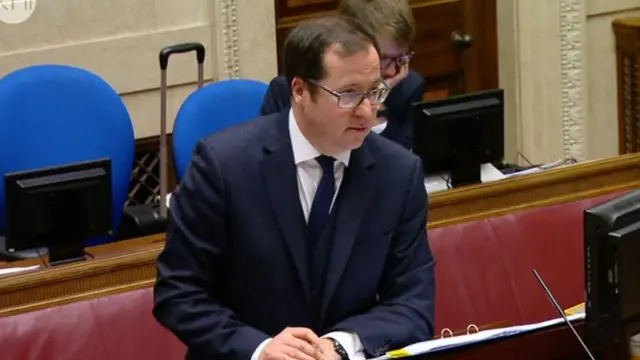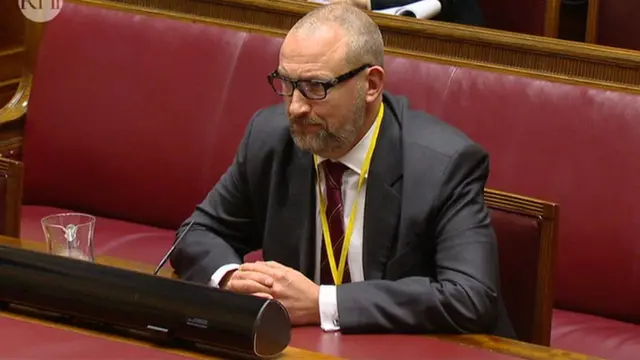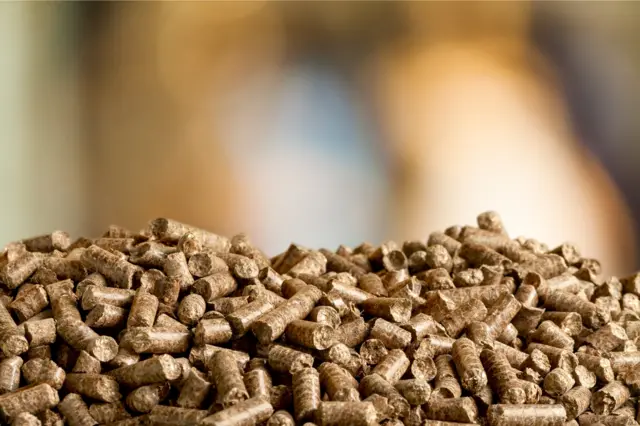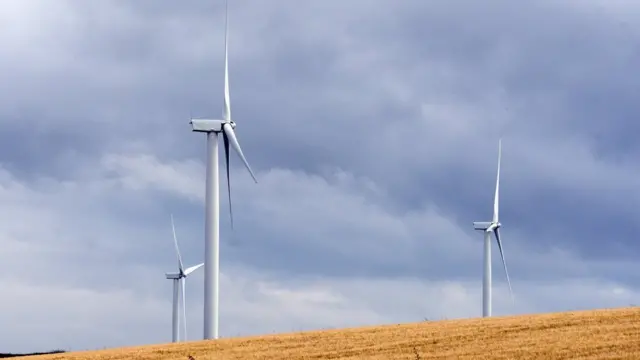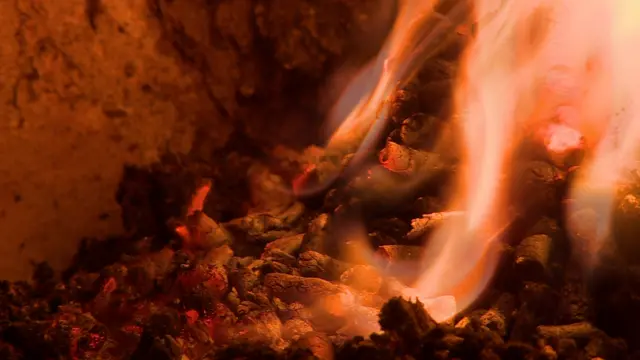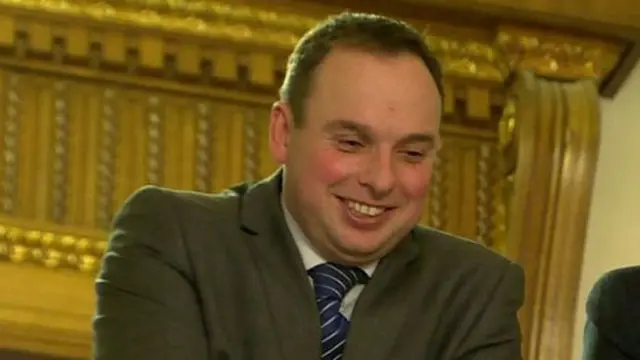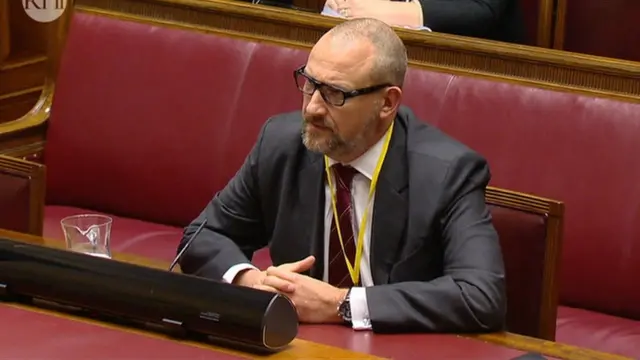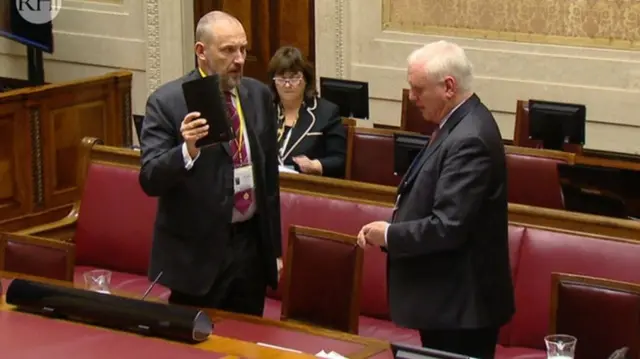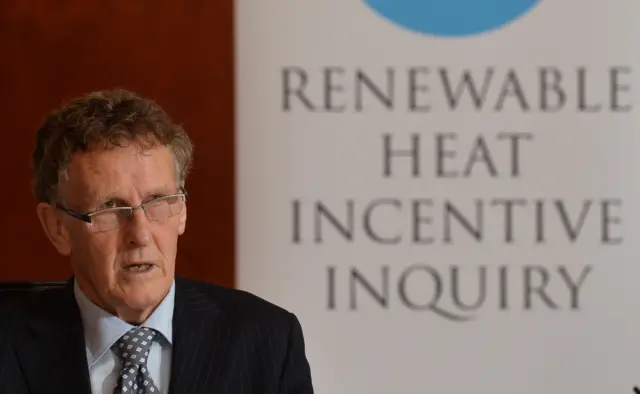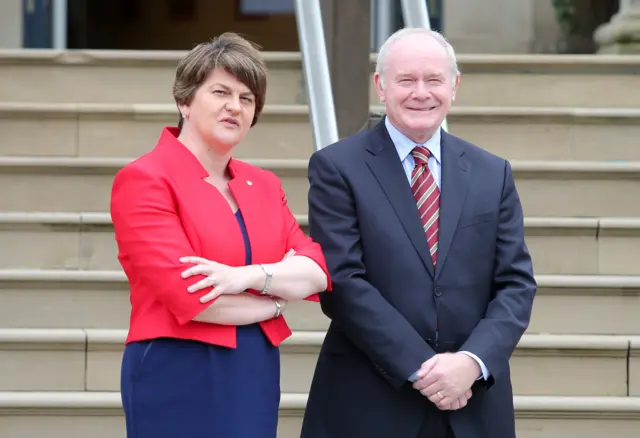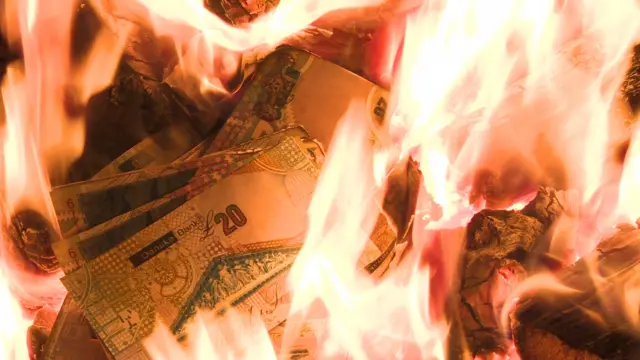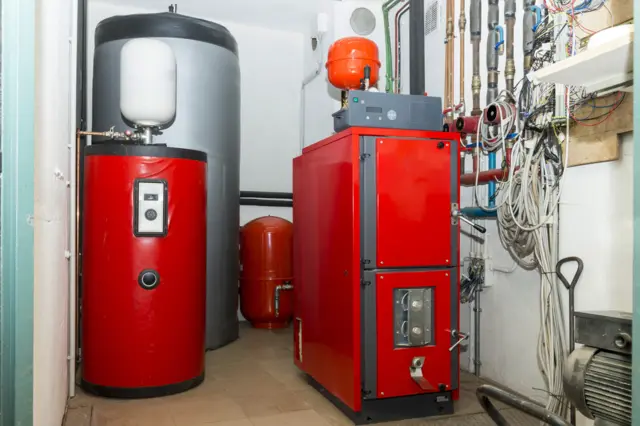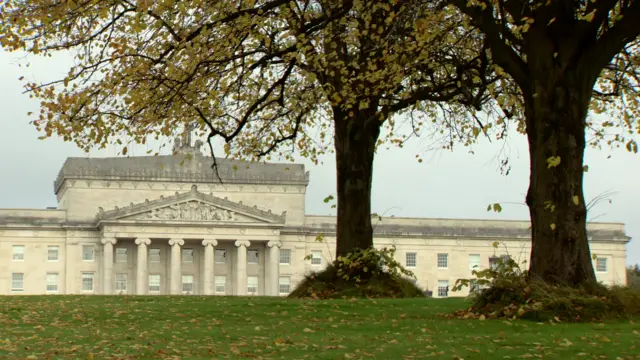'I never saw RHI promoted as cash for ash'published at 13:04 BST 16 October 2018
The RHI scheme was being promoted by biomass boiler firms at agricultural shows and events - one installer told the inquiry in February that the only way someone in those circles couldn't have noticed how lucrative it was would've been if they were "blind and deaf".
Neil Elliott said installers knew of the scheme's flaws soon after it was launched and it was "widespread knowledge" that the incentive was "too good to be true".
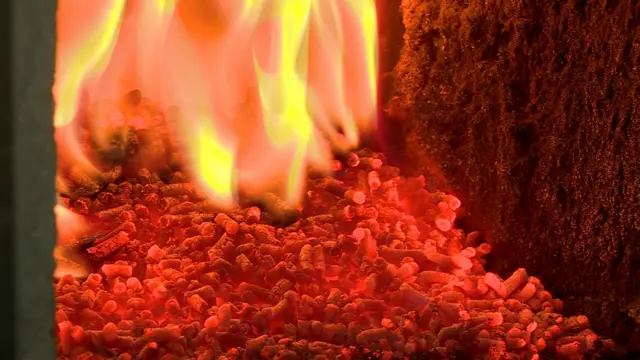
Chris Osborne went to those events but says he would've only "very rarely" went into the marquees where boiler firms had their stands set up, promoting the scheme using slogans such as "cash for ash" and "burn to earn".
He says that if he'd gone for a look he would've noticed the scheme being promoted in the terms.
Sir Patrick Coghlin is surprised, saying that given Mr Osborne was a policy man it would've been a "rather basic thing" to get an understanding of how the scheme was working from a commercial point of view.
Mr Osborne claims he did most of his business at those events in the "corridors".
